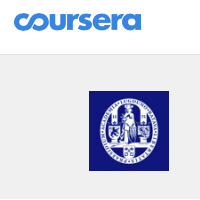Wk2-14 Kuyken - 8 weeks later
For me, I think, there are two issues. One is around an eight week class itself, like MBCT or MBSR, and I think, I would really encourage folks to think about it terms of three things. One is, what is the intention of that eight week class? What is the aim and intention of that eight week class. I'm not aware of MBSR or or MBCT, or anybody really saying that they are about teaching people Buddhism. I really don't think they are. The thing I know about MBCT for recurrent depression. The intention of that is to help people learn the skills to not get depressed again. That's the intention. The work that Mark Williams and Danny Penman did on Mindfulness Finding Peace in a Frantic World, that's to help people to manage their minds and bodies better with the challenges of everyday life. I don't think the word Buddhism appears in the book or in the index. That's not the intention. So the first thing is, what is the intention? The second is, who are the population that we're looking to serve? Can we actually understand the population of people who are coming to our classes, and can we best serve them? So is it, people with recurrent depression, is it school kids who are conscripts who have no choice to be in that class other than go to it? Can we really understand the population of people that we're trying to serve? What are their needs and how can we best serve them? And then finally, what's the context that we're working in? Of course, this can be thought about in lots of different ways. But if you're working in a health service, a national health services as we have in the UK, you are there to deliver health care intervention. So that's what you need to be thinking about, not the context within which you're working. If you are offering something privately or in a prison or in a school, that's the different context within which you're working. So that I think needs to be thought through kind of really carefully. So I think there's something about the intention, there's something about population there's something about the context. And I'm not sure that the mainstream MBCT, MBSR cases I'm aware of, those issues that you've raised, I'm don't see those apply so then would query, well, what's that about? Where did that come in? And the information that people are putting in their websites, the way in which individuals orientations are structured, all of that is in the service that helping to clarify between the teacher and the participant what's the intention here. Who are you? How can I best serve you? The context we're going to be working in is in health service, whatever it might be. Your point about beyond eight-week course, I couldn't agree with you more. And I actually think the responsibility comes back to people like you, me, and many other people working in this field. I think there is a major responsibility on our shoulders that actually, at the end of the eight week class, might experience over and over again as people go gosh, something has shifted for me here. Something has changed for me here, and there is an invitation to continue this investigation and inquire beyond the eight week course. How do I do that? So I think the responsibility comes back to us to think through how we can do that. Oxford Mindfulness Center where I'm producing a digital product, a sort of an app, which will be called, which will take you through the eight week course but then will provide support beyond the eight week course. And our vision for that is that it will actually help to deepen people's practice, and we'd like to develop a face to face version of that as well, so those who want to, can continue to come back perhaps once a month and be supported in their ongoing mindfulness practice. So that's the kind of intention. But I absolutely agree with you. What do we do to support people beyond eight weeks is a snippet in a person's life. What do we do? And I'm not entirely convinced just saying go off and find, but I'm quite sure, go off and find your own retreat center is really, it's often serving people well.

